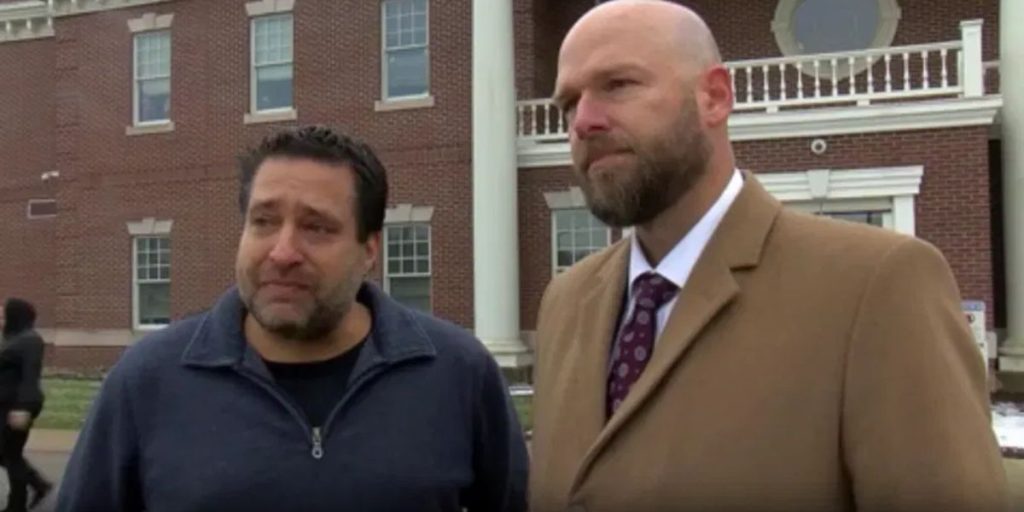An Ohio pastor charged with zoning violations for harboring homeless persons has launched a federal lawsuit against the city of Bryan and its leaders.
Earlier this year, Pastor Chris Avell decided to keep the doors of his church, Dad’s Place, open 24 hours a day, seven days a week, in order to reach out to the city’s “vulnerable.” Bryan is a small city of around 8,600 people located 65 miles west of Toledo.
The city charged Avell with 18 zoning breaches in December, alleging that he violated a city regulation that prohibits residents from staying on the first level of the property. Furthermore, the local fire chief discovered numerous fire code breaches at the church.
Avell pleaded not guilty to the allegations during his Jan. 11 arraignment, according to online court records.
Now he’s suing the city, alleging religious discrimination and a harassment campaign against the church.
The city claims that Avell was given an opportunity to comply with the code after receiving warnings, but evidently refused.
“The only reason this is still an ongoing fire/safety concern is because Chris Avell ignored the City’s notices in the fall, hence forcing criminal charges related to zoning,” the city said in a news statement issued on Friday.
Ten days to kick out locals staying in the church

Avell filed a federal lawsuit on Monday against the city of Bryan, Mayor Carrie Schlade, Bryan Police Department Captain Jamie Mendez, Bryan Planning and Zoning Administrator Andrew J. Waterson, and Bryan Fire Chief Doug Pool.
Dad’s Place has been in business in the city for five years and opted to stay open 24 hours a day, seven days a week in March.
According to the complaint, the church hosted and fed those in need of shelter for months “without incident,” with an average of eight people staying each night.
However, the city of Bryan provided a conflicting account, stating in a news release that the police department received an increase in calls for service in May 2023 regarding “inappropriate activity” at Dad’s Place, including criminal mischief, trespassing, overdose, larceny, harassment, disturbing the peace, and sexual assault.
The city discovered Dad’s Place was housing people in November, according to the release, and it was “unlawful” because it violated a city ordinance that prohibits residential use on the first floor of any building within the C-3 zoning district, which includes the church.
On November 3, Bryan city officials issued a cease-and-desist notice to Dad’s Place, ordering it 10 days to halt operating 24 hours a day or “face legal penalties,” according to the lawsuit filed in the Northern District of Ohio.
The letter stated that failure to comply would result in criminal misdemeanor charges, which “carry a penalty of $100-$500, up to six months in jail, or both.”
The city stated that when it ordered Dad’s Place to stop lodging individuals, it offered to assist “in placing any persons living or staying there.”
A ‘harassment campaign’
According to the lawsuit, the church was “bewildered” by the cease-and-desist letter and contacted municipal officials to determine how it could continue to operate in accordance with zoning laws.
Pastor Avell called Waterson to ask how the church could continue its outreach to the homeless, and Waterson suggested they could seek a zoning variance or a conditional use permit, “but that the City would deny such requests,” according to the complaint. Avell also allegedly attempted to contact Mayor Schlade several times but received no response, according to the filing.
The city stated that after receiving the November notice, Avell filed a conditional use permit to allow “continued residential use on the first floor,” but was told that such use was forbidden and could not be authorized.
Dad’s Place refused to kick out individuals staying at the church, citing “directly contrary to its religious obligation,” according to the complaint. In turn, the city reportedly engaged in a “campaign to harass, intimidate, and shut down Dad’s Place,” according to the lawsuit.
According to the city, a fire code inspection in November revealed 18 violations, some of which were “serious and potentially endangering the lives and safety of those in the building,” such as improper laundry facility installation, inadequate or unsafe exit areas, and limited ventilation.
According to the complaint, following the first fire code inspection, Fire Chief Doug Pool submitted a letter to Bryan Police Chief Greg Ruskey urging that Avell face criminal charges for the church’s alleged violations of the city’s zoning ordinance.
On December 18, the city officially filed 18 distinct criminal accusations against Avell. The complaint stated that Avell learned about the claims from a local newspaper.
After Avell was charged, the city regularly sought to harass and intimidate the church by visiting the site “under false pretenses” and saying that congregants were “panhandling or using illicit drugs.”
Furthermore, the city is constantly changing the “goalposts” and remedies that the church must implement to comply with the city’s fire laws, according to the petition.
In one case, the city required the church to install a hood above the burner in the kitchen. The church agreed, but the city asked that it install a different hood and obtain an inspection from the state of Ohio before it could be pleased, according to the complaint.
Re-inspections for fire code violations in January revealed that the majority of the issues had been remedied, but five remained uncorrected as of Jan. 16, and Avell was penalized for them, according to the city. Pool discovered a gas leak on his Jan. 16 re-inspection, and he also noticed 20 people who had spent overnight at the church, according to a city statement.
The city is also allegedly threatening to fine the church’s landlord if the church is not evicted from the premises, according to the complaint.

The lawsuit claims that the city’s actions violate the church’s rights under the First Amendment, the Equal Protection Clause of the 14th Amendment, which prohibits religious discrimination, and the Religious Land Use and Institutionalized Persons Act (RLUIPA), which states that the government may not impose a land use regulation that places a “substantial burden” on religious exercise.
The lawsuit also includes a request for a temporary restraining order against the city.
A determined pastor.
Despite the charges, Pastor Avell maintains his resolve.
In a sermon webcast on the church’s Facebook page on Sunday, he stated, “Sure, we could build a 24/7 homeless shelter out of town…” But collectively, we could create a 24-hour refuge inside town.”
Jeremy Dys, senior counsel for First Liberty, one of the lawyers representing Avell in the case, said in a statement: “Instead of prosecuting a pastor in an attempt to drive his congregation out of her sight, Mayor Schlade should be supporting a church trying to care for the marginalized in her community (and in the dead of winter). “The Constitution and the law require nothing less.”
Meanwhile, Bryan City Attorney Marc Fishel supported the city’s actions, noting “significant safety issues at Dad’s Place.”
“These violations of the fire code noted by the Bryan Fire Chief create a clear and immediate danger to occupants of Dad’s Place, whether transient residents or merely visitors to the facility,” he said in an interview with NBC News. “There are also apartments on the second floor of this building unrelated to Dad’s Place.”
In a statement, the city stated it has been accused of neglecting to assist the homeless in addressing difficulties at Dad’s Place.
“This could not be further from the truth. In truth, The Sanctuary Homeless Shelter runs next to Dad’s Place and fully complies with the zoning and fire codes. The City collaborates with this shelter on an ongoing basis since it serves this demographic well while being safe and legal,” the city stated.